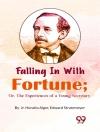In ‘Will Warburton, ‘ George Gissing explores the poignant intersections of personal ambition and societal constraints at the turn of the 20th century. The novel follows the eponymous character, a young man navigating the complex landscapes of love, ambition, and disillusionment in the rapidly transforming milieu of Edwardian England. Gissing’s narrative style is marked by its psychological depth and social realism, employing rich character studies and a critical gaze on contemporary class struggles, emblematic of the author’s larger body of work that often critiques the materialist values of society. George Gissing, a notable figure in the literary movement of realism, faced personal tribulations that profoundly influenced his writing. Having come from modest beginnings and personally experienced the struggles of the working class, Gissing imbues his characters with authenticity and complexity, reflecting his own challenges within a society that often stifled individuality and creativity. This novel, published in 1896, serves as both a personal reflection and a commentary on the broader societal issues of the time. Readers seeking a richly woven narrative that contemplates human aspirations against the backdrop of societal limitations will find ‘Will Warburton’ both engaging and thought-provoking. Gissing’s exploration of the human condition, set against a vivid historical context, invites readers to reflect on their values and the generational struggles that continue to resonate today.
A propos de l’auteur
George Gissing, an English novelist renowned for his realistic portrayal of the lower middle class, was born on November 22, 1857, in Wakefield, Yorkshire, and passed away on December 28, 1903. Gissing’s works often reflect his own struggles with poverty and his failed relationships, elements that lend his narratives a poignant sense of authenticity. Known for his meticulous character development and insightful social commentary, Gissing authored a number of significant Victorian novels, including ‘New Grub Street’ (1891) and ‘The Odd Women’ (1893). His book ‘Will Warburton: A Novel of the Days of the Most Significant Novel (1905)’ is another testament to his narrative skill, offering a compelling exploration of the life of a well-to-do man who faces a swift reversal of fortune and must navigate lower-class existence while maintaining dignity and integrity. Despite his considerable output of some 23 novels, Gissing never achieved a great deal of financial success during his lifetime, though his literary reputation has grown posthumously. Notable for their gritty realism, Gissing’s novels continue to be studied for their critical examination of Victorian society and their unvarnished portrayal of the difficult lives led by many during the era.












